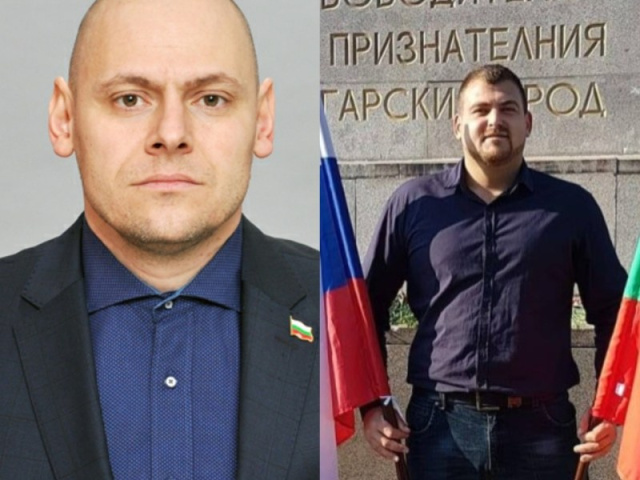
Plovdiv, Bulgaria — Zlatomir Devlenski, the chairman of the Bulgarian movement “Rusophiles” in Plovdiv, and Ivan Galabov, a former employee of the State Agency “National Security” (SANS), have been formally charged with disclosing information classified as a state secret.
The charges were announced by the Plovdiv prosecutor’s office following their arrest, as reported by the Bulgarian National Television (BNT).
According to authorities, Galabov, who had access to sensitive information through his position at SANS, allegedly gathered and unlawfully disseminated this information.
He is being charged as the executor of the crime, while Devlenski stands accused of instigating these actions within the Plovdiv branch of the “Rusophiles” movement.
The arrests have sent shockwaves through the political landscape of Bulgaria, particularly in Plovdiv.
Following 24 hours in police custody, both men were released on bail of BGN 5,000 each and are now prohibited from leaving the country pending further legal proceedings. If convicted, they could face prison sentences ranging from two to eight years.
The political ramifications were swift. Earlier today, the City Council of the Bulgarian Socialist Party (BSP) in Plovdiv issued a statement offering full support to Devlenski.
The BSP’s declaration denounced what it termed as a politically motivated arrest, expressing deep concern over the circumstances surrounding Devlenski’s detention.
Gabriel Valkov, chairman of the BSP’s youth organization, strongly criticized the manner of Devlenski’s apprehension. “The manner in which Zlatomir Devlenski was arrested is incompatible with modern standards of justice, particularly in Bulgaria,” Valkov stated.
He vehemently denounced the charges against Devlenski as baseless and condemned what he described as unjustifiable arrests. Valkov cited previous condemnations of Bulgaria in international forums to bolster his argument, suggesting that the country has a history of controversial legal actions.
The “Rusophiles” movement in Bulgaria has long been a point of contention, with its strong pro-Russian stance often clashing with the country’s official policies and alliances.
Devlenski, a prominent figure within the movement, has been a vocal advocate for closer ties between Bulgaria and Russia, which has led to significant political friction.
The charges against Devlenski and Galabov have intensified the debate over the role of pro-Russian movements in Bulgaria and the state’s response to perceived threats to national security. Critics argue that the arrests are part of a broader strategy to suppress dissenting voices and stifle political opposition.
Supporters of the arrests contend that the actions of Galabov and Devlenski posed a genuine threat to national security.
“The unlawful dissemination of classified information cannot be tolerated,” a government official, who wished to remain anonymous, stated. “Protecting state secrets is a fundamental responsibility of our security agencies, and those who violate this trust must be held accountable.”
As the legal proceedings unfold, the case is likely to draw further attention both domestically and internationally. The outcome will not only determine the fate of Devlenski and Galabov but also potentially influence the future of political discourse and national security policies in Bulgaria.
In the meantime, the Plovdiv community remains divided, with strong opinions on both sides of the issue. The tension underscores the complex and often contentious nature of Bulgaria’s political landscape, where issues of national security, political loyalty, and international alliances continue to intersect and provoke debate.
This article was created using automation technology and was thoroughly edited and fact-checked by one of our editorial staff members
